What Drove Sigmund Freud to Write a Scandalous Biography of Woodrow Wilson?
The founder of psychoanalysis collaborated with a junior American diplomat to lambaste the former president
/https://tf-cmsv2-smithsonianmag-media.s3.amazonaws.com/filer/f6/38/f6382c35-3c87-49ba-a2db-ed69451ae9d7/sep2018_f02_freud-wr.jpg)
Sigmund Freud waited too long. Throughout the 1930s, as the Nazis rose to power in Germany and took ever more aggressive action against the country’s Jews, the father of psychoanalysis had insisted on remaining next door in Austria, where he had lived virtually his entire life. On March 13, 1938, in the so-called Anschluss, Germany annexed Austria. Freud, nearing his 82nd birthday, realized that the prospects for Jews there were dismal indeed and agreed to leave. But by then, as his physician, Max Schur, later wrote, “we had to wait for ‘legal permission.’”
The bureaucratic wheels ground slowly, and the situation in Vienna grew darker by the day. On March 15, the American chargé d’affaires there, John Wiley, sent a message to the State Department, to be passed on to William C. Bullitt, the U.S. ambassador to France: “Fear Freud, despite age and illness, in danger” from the Nazis. A few weeks later, Wiley sent Bullitt a cable that amplified his concern: “The treatment of the Jews has exceeded anything that took place in Germany. It has been an economic pogrom; burglary in uniform.”
Bullitt was looped in because he had a special interest in events in Austria: Freud was his friend, his onetime psychoanalyst and his co-author on what might be the oddest literary project in the Freudian canon.
In the preceding years, Bullitt had kept a watchful eye over the doctor, promising him in 1933 that “if things should become difficult for you in Vienna the same welcome will be awaiting you in America as if I were at home.” Now, five years later, Bullitt, who earned $17,500 a year as ambassador and came from a wealthy Philadelphia family, cabled the American ambassador to Germany that if Freud and his family needed aid, “please render every possible assistance including financial for which I will be responsible.”
Several of Freud’s close relatives left Austria, one by one, as the spring progressed. By early June, Freud, his wife and their daughter Anna were the only ones still in their home. On June 4, they boarded the Orient Express, bound for Paris. When the train pulled into the Gare de l’Est, on the platform to meet it were Freud’s nephew and grandnephew, his good friend Marie Bonaparte and Ambassador Bullitt, dashing in a gray herringbone suit and tan homburg. The doctor and the diplomat walked into the city arm in arm.
**********
If Woody Allen’s film Zelig didn’t exist, we might describe a figure who continually rubs up against famous figures and famous events, without quite becoming famous himself, as a “Bullitt.” Bill Bullitt was voted most brilliant in Yale’s class of 1912 (which included Averell Harriman, Cole Porter and Gerald Murphy), and he covered World War I for the Philadelphia Public Ledger. His work was so impressive that he was appointed assistant secretary of state at the age of 26. In 1919, he led an American mission to assess Soviet Russia. His verdict: “We have seen the future, and it works.” The writer Lincoln Steffens, who accompanied Bullitt on the mission, later claimed the line as his own.
Bullitt sat on the American commission that negotiated the Treaty of Versailles after World War I, but he eventually resigned in protest after President Woodrow Wilson refused to accept his recommendation to recognize the Soviet Union. He sent the president a scathing (and prophetic) letter charging that “our Government has consented now to deliver the suffering peoples of the world to new oppressions, subjections and dismemberments—a new century of war.” His forceful testimony before Congress in September 1919, Janet Flanner wrote in the New Yorker, “was considered to have brought the greatest weight against America’s joining the League” of Nations.
It also ruined, for the time being, Bullitt’s diplomatic career.
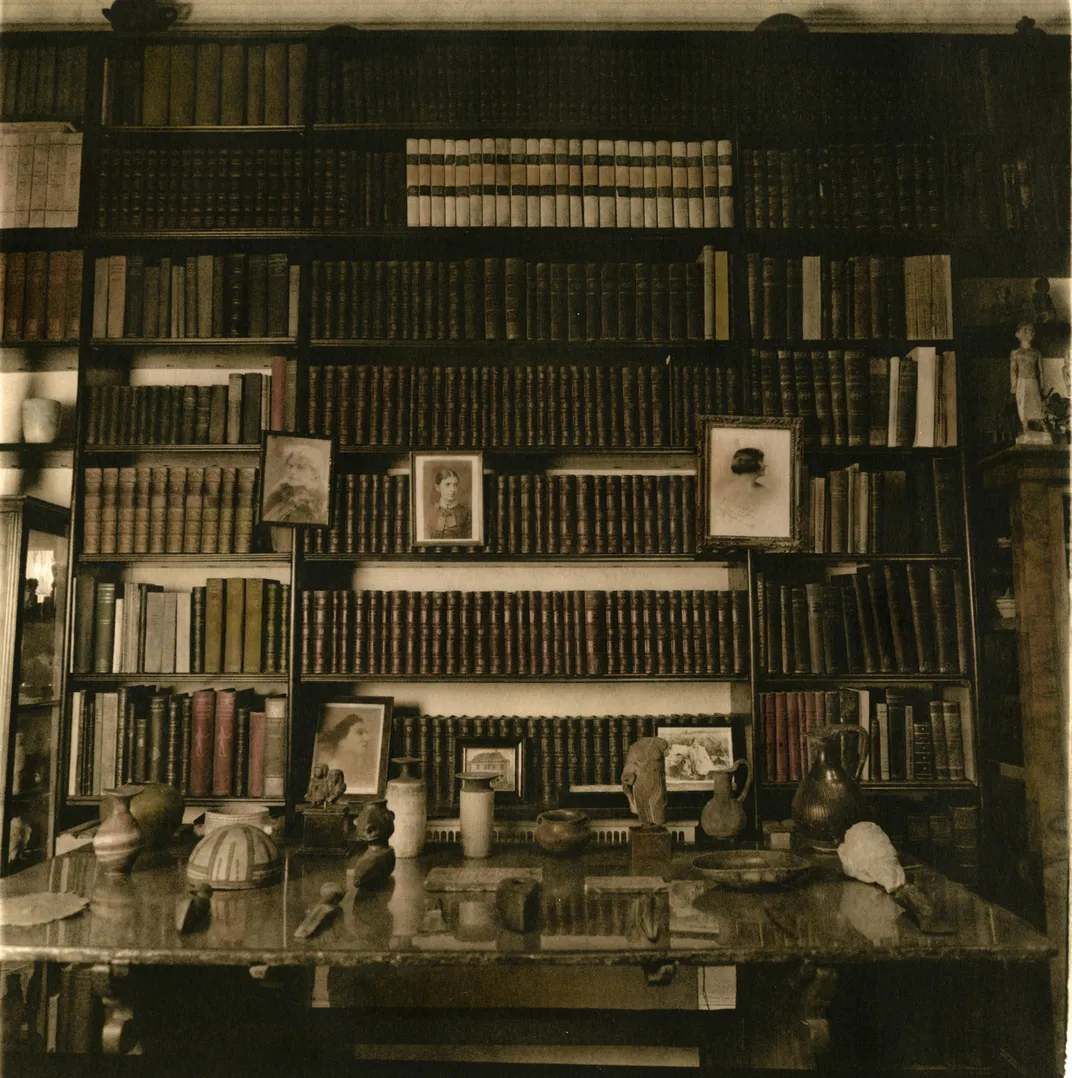
In 1923, he married Louise Bryant, the widow of the journalist John Reed (Diane Keaton played her in the 1981 film Reds), and lived with her among the expatriates in Paris. Writing to F. Scott Fitzgerald in 1927, Ernest Hemingway referred to Bullitt as “a big Jew from Yale and a fellow novel writer.” (Bullitt’s mother descended from wealthy German Jews who had converted to the Episcopal Church many years before.) Bullitt’s revenge was that his first and only novel, It’s Not Done, a racy sendup of Philadelphia society, sold 150,000 copies in 24 printings—a far better initial showing than Hemingway’s The Sun Also Rises.
In the mid-’20s, Bullitt appears to have suffered a nervous breakdown of sorts. Bryant wrote to a friend that he “developed the utmost of eccentricities. He would lie in bed and be afraid of anyone coming into the room.” Like many well-to-do Americans in such straits, Bullitt traveled to Vienna to be psychoanalyzed by the great Sigmund Freud. Later Bullitt would claim it was Bryant, not he, who was treated, but Freud on several occasions in his letters describes Bullitt as a patient.
**********
After Bullitt went into treatment, his relationship with Freud deepened fairly quickly into friendship. His characteristic salutation in their warm, intimate correspondence was, “Dear Freud.” According to Freud’s biographers, Bullitt was one of just three people permitted to address him by name, and not as “Herr Doktor.” (The others were H.G. Wells and the French entertainer Yvette Guilbert.) Freud, in turn, closed his letters to Bullitt, “Affectionately yours.”
Given that the two men were different in virtually every way—not least a 35-year age gap—the relationship that developed between them was hardly predictable. But in retrospect it is not shocking. Freud was known for being drawn to charismatic individuals, and that adjective fit Bullitt as well as his suits did. George Kennan, who worked closely with him in the diplomatic corps, observed that “he resolutely refused to permit the life of those around him to degenerate into dullness and dreariness.” Beyond that, however, a specific interest also drew the men together. As another American patient and student of Freud’s, Mark Brunswick, would put it, “Bullitt and Freud fell in love at first sight on the basis of their hatred of Wilson.”
Bullitt’s animosity was so enduring that he wrote a play titled The Tragedy of Woodrow Wilson in the late ’20s. It was, deservedly, never produced, though when the playwright sent Freud a copy, the doctor wrote him back, in English: “I soon was swept away by the passionate rhythm. I enjoyed the thing immensely. I see I was right for trusting your powers as a writer. Take my congratulations for your work.” Freud frequently blamed the American president for the breakup of the Austro-Hungarian Empire. He told a friend, “As far as a single person can be responsible for the misery of this part of the world, he surely is.”
In 1930, the two agreed to collaborate on a Wilson biography, Freud accepting a co-author for the first time since he co-wrote Studies in Hysteria with Josef Breuer in 1895. Bullitt—free to relocate following his divorce from Louise Bryant—started spending large chunks of his time in Vienna.
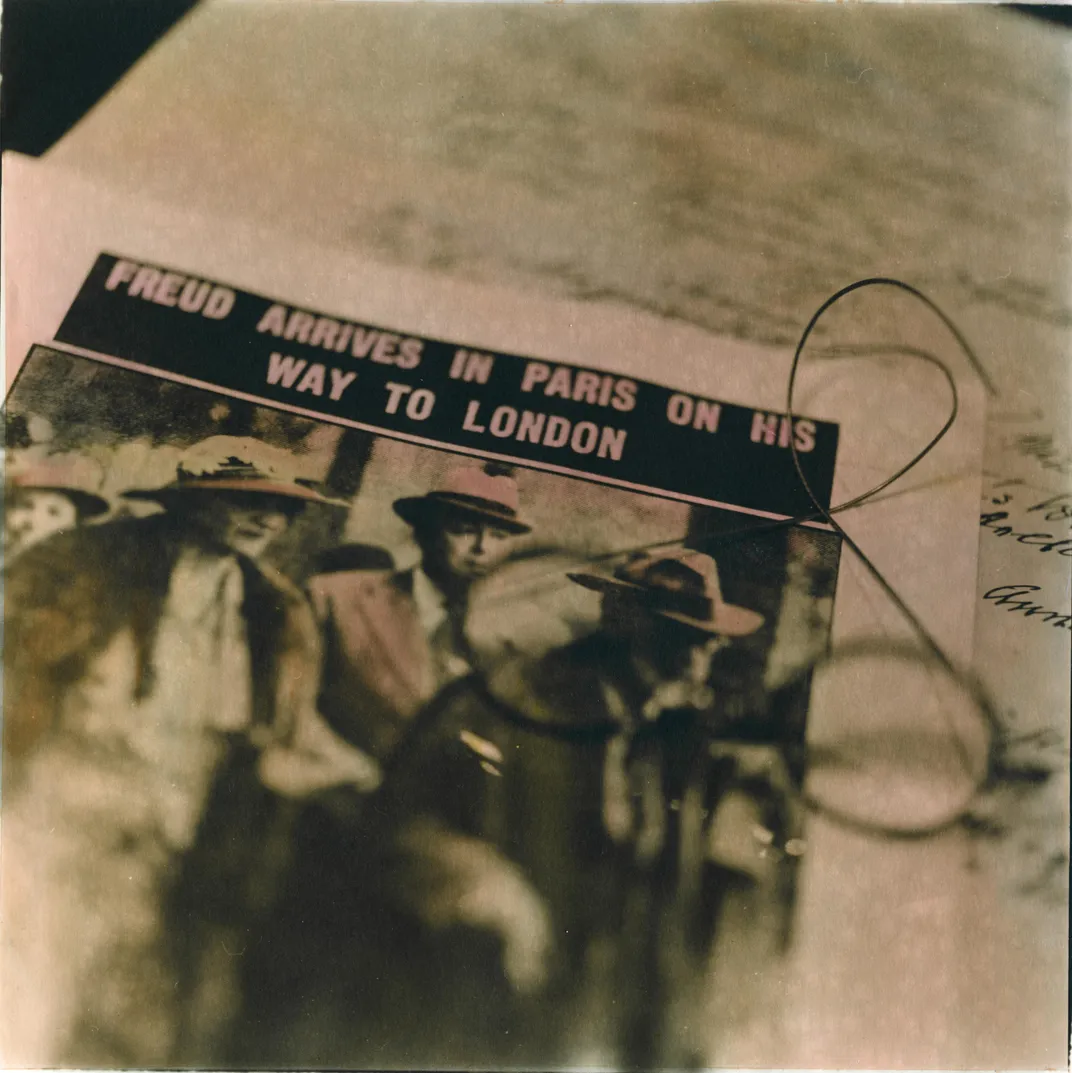
As it happened, their book wouldn’t come out until 1967—28 years after Freud’s death. When it did, Thomas Woodrow Wilson: A Psychological Study outdid Bullitt’s novel for shock and outrage. As the historian Barbara Tuchman put it at the time, Freudians received the book as “something between a forged First Folio and The Protocols of [the Elders of] Zion.”
In the New Republic, the psychiatrist Robert Coles wrote, “The book can either be considered a mischievous and preposterous joke, a sort of caricature of the worst that has come from psychoanalytic dialogues, or else an awful and unrelenting slander upon a remarkably gifted American president.” And in the New York Review of Books, Erik Erikson characterized the work as “Freudulence” and asserted: “For me and others, it is easy to see only that Freud could have ‘written’ almost nothing of what is now presented in print.”
This reaction established the general reputation of Thomas Woodrow Wilson over the past half-century: It has been considered either a complete or partial fraud perpetrated by Bullitt, who affixed Freud’s name to his own didactic and inept application of Freudian principles to his bête noire, Wilson.
But that reputation is wrong—or, at least, a gross caricature of their collaboration. Bullitt’s papers, made available to the public after the death of his daughter in 2007, demonstrate not only that Freud was deeply involved in writing the book, but also that he composed some of the passages that especially provoked the reviewers’ wrath. Further, the papers answer two questions that have always surrounded this bizarre partnership: Why would Freud, who at that point was an eminent figure in Western thought, agree to collaborate with an unemployed journalist and junior diplomat? And why did it take so long to get the book into print?
After Bullitt finished his play—which he dedicated to Freud, “who, because he has acted always with both intellectual integrity and moral courage, is a great pathfinder for humanity”—he decided to write a nonfiction book on the Treaty of Versailles, comprising studies of Wilson and the other main participants. One day in early 1930, Bullitt met Freud in Berlin and described his plans. “Freud’s eyes brightened and he became very much alive,” Bullitt recalled. “Rapidly he asked a number of questions, which I answered. Then he astonished me by saying he would like to collaborate with me in writing the Wilson chapter of the book.”
Bullitt replied—with uncharacteristic modesty—that “to bury” Freud’s contributions in a chapter of a Bullitt book “would be to produce an impossible monstrosity; the part would be greater than the whole.” The two men went back and forth over the next few days and emerged with an agreement: They would collaborate on the entire book, and it would be a psychological study of Wilson.
The Basic Writings of Sigmund Freud (Psychopathology of Everyday Life, the Interpretation of Dreams, and Three Contributions To the Theory of Sex)
This classic edition of "The Basic Writings of Sigmund Freud" includes complete texts of six works that have profoundly influenced our understanding of human behavior.
It’s easy to see why Bullitt would be so attracted to this undertaking. It’s less immediately obvious why Freud would go for it. But he had his reasons.
Bullitt recalled that when they met in Berlin, Freud was “depressed. Somberly he said that he had not long to live and that his death would be unimportant to him or to anyone else, because he had written everything he wished to write and his mind was emptied.” Bullitt was prone to hyperbole, so Freud may not have said those exact words, but he was certainly at a low point. Seven years earlier, he had been diagnosed with cancer of the jaw, and in addition to radiation treatments and several operations, he had to contend with an uncomfortable metal prosthesis, which he called “the Monster,” that essentially replaced the roof of his mouth. In fact, he happened to be in Berlin for readjustment of the Monster, undergoing hours of fittings every day for several weeks. Beyond that, over the previous decade he had experienced the deaths of a cherished grandson and other family members, as well as the defections of several disciples, including Carl Jung, Alfred Adler and Otto Rank.
Freud also needed money, especially for his struggling publishing company, the Verlag. Given Bullitt’s track record with It’s Not Done and the still-intense interest in Wilson and his legacy, Freud likely imagined the book as a potential best seller. Leaving aside his fondness for Bullitt, the man was a rich American, and Freud had a tendency to see his patients from across the ocean primarily as sources of income. As he once remarked to his Welsh disciple Ernest Jones, “What is the use of Americans, if they bring no money? They are not good for anything else.”
In any case, the men quickly agreed to embark on the Wilson project. On October 26, 1930, Bullitt wrote to his friend and mentor Edward House, “Tomorrow, F and I go to work.” Three days later, Freud made a three-word entry in his diary: “Work taken up.”
Anna Freud recalled that the two men met during the evenings in a secretive, almost conspiratorial manner. Bullitt’s diary gives a vivid sense of the texture of those evenings, as in these entries (never previously published), written after two of their early meetings:
Saw Freud this evening at 6. He was seated in his study at his desk, dressed in pajamas & a dressing gown. He jumped up and seemed genuinely glad to see me. He looked well—eyes sparkling—but he told me he was just recovering from an attack of pneumonia. It was the first time he had been out of bed...he had seen no one but his family for some weeks. “I think I recovered more quickly,” he said, “because I wanted so much to see you and the material you have brought.”
...He said: “I hope one result of the publication of this book will be your re-introduction to politics.” I told him I hoped it might be. “That is really, I think, my chief reason for wanting to write it,” he said, “my affection for you is very great.” Then he laughed & added: “But my dislike of Wilson is almost as great as my liking for you.”
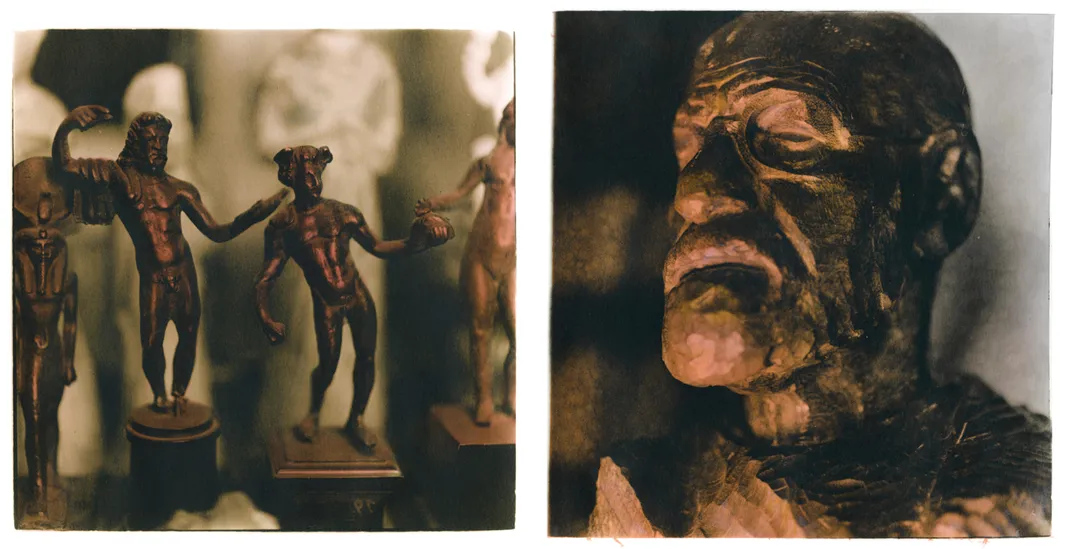
Eleven days later, Bullitt recorded this exchange:
While working today with Freud, he said—“You and I know that Wilson was a passive homosexual but we won’t dare say it.”
I said “Certainly we’ll say it but subtly.”
Freud answered: “That’s the equivalent of not saying it at all.”
The division of labor worked out this way: Bullitt wrote what turned out to be a 30-page account of Wilson’s early life. Freud wrote an introduction and Chapter 1, which set out some of the principles of psychoanalysis as they applied to Wilson. And Bullitt composed the remaining 33 chapters, sending them to Freud for his editorial notes and eventual approval. And approve he did. In September 1931, after Bullitt sent on a draft of the entire book, Freud responded: “While I made many changes to the general section and rewrote the whole in German, I found in the specifics, when you turn to W himself, very little, and from page 43 on absolutely nothing, that would have required my intervention. It really has been done excellently.”
That first chapter by Freud—preserved in the Bullitt Papers in 24 pages of his German Gothic script—contains many of the sort of passages that drew the reviewers’ scorn, as when he wrote: “The introduction of the superego of course does not resolve all the difficulties associated with the Oedipus complex, but it does provide a location for a certain part of the libido flow, which originally appeared as activity toward the father.”
Bullitt’s sections, by contrast, while marred by the occasional psychoanalytic jargon and reductiveness, more often show, in vigorous prose, the fruit of his extensive research and his personal history with Wilson and many of the other characters. Here is Bullitt on the first meeting between Wilson and House, who would serve as the president’s primary adviser on European affairs during and after World War I:
After looking for the first time through Wilson’s eyeglasses at his pale gray eyes, House told a friend that the time would surely come when Wilson would turn on him and throw him on the scrap heap. This did not disturb House. He was happy to use his power so long as it might last. He soon learned that Wilson did not like open opposition but that he could make a suggestion to Wilson, drop the matter if Wilson disapproved, and remake the suggestion a few weeks later in a slightly different form and be reasonably sure that Wilson would answer him in the words of the first suggestion.
And on the Paris Peace Conference in 1919, which Bullitt attended:
On June 10, he [Wilson] refused to sit again for the portrait that Sir William Orpen was painting of him because Orpen had drawn his ears as large and protuberant as they actually were, and he was persuaded to sit again only by the promise that the ears should be reduced to less grotesque dimensions. They were.
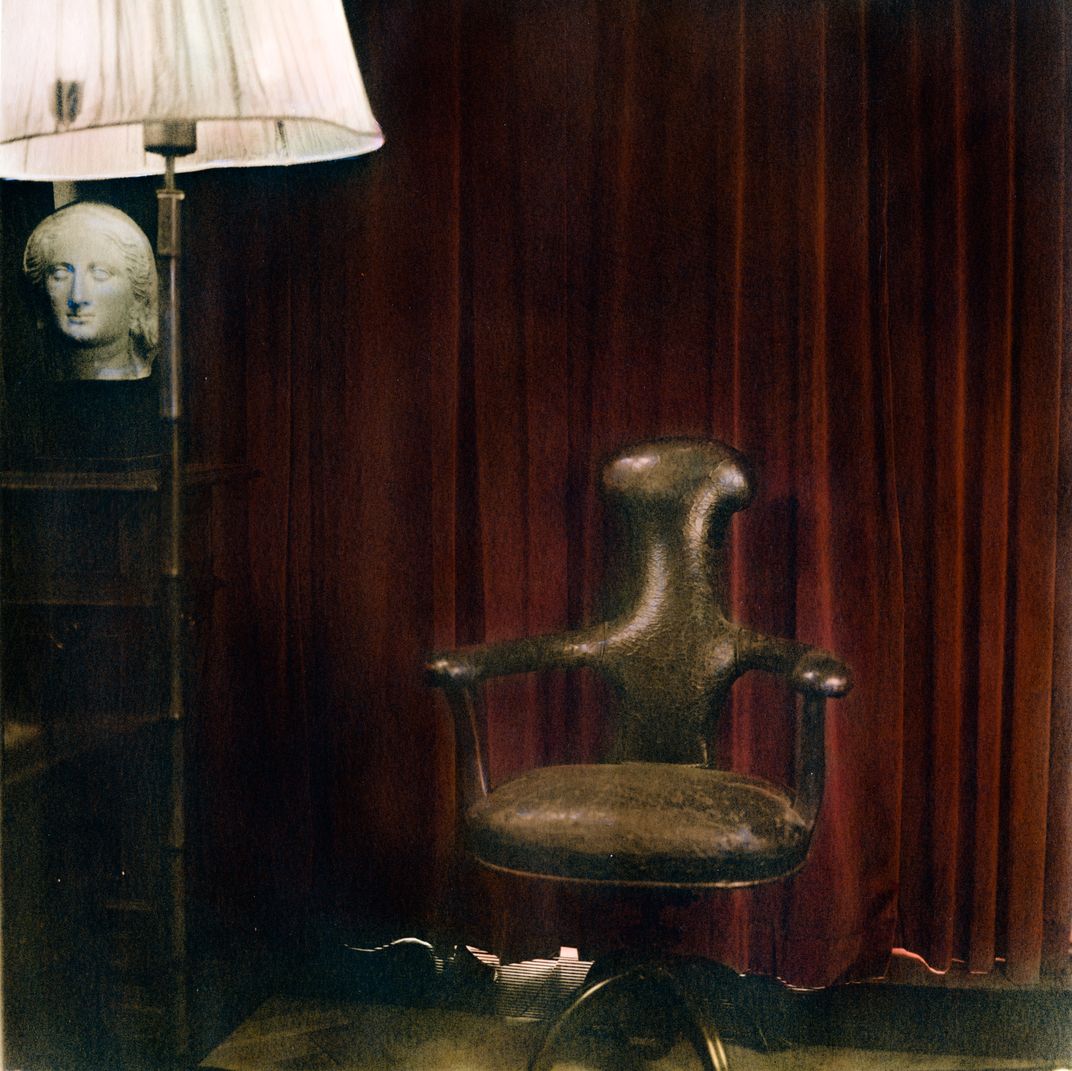
In January 1932, the writing partners signed a contract stipulating that Bullitt would receive two-thirds of any royalties on the book and Freud one-third. At the same time, Bullitt gave his co-author an advance of $2,500—more than $40,000 in today’s money, and a substantial sum in the depths of the Depression. “The book is at last finished,” Bullitt wrote to House in April, “that is to say the last chapter has been written and it could be published if both F. and I were to die tonight.”
But no publication plan ensued. In December 1933, Freud complained to Marie Bonaparte (who was the great-granddaughter of Napoleon’s younger brother, Lucien): “From Bullitt no direct news. Our book will never see the light of day.”
Why the holdup? According to Bullitt’s account, in the spring of 1932, Freud made changes in the text and wrote “a number of new passages to which I objected. After several arguments we decided to forget the book, and to attempt then to agree. When we met, we continued to disagree.”
Evidence in Bullitt’s papers suggests that he rejected a number of Freud’s passages, all of which might be perceived as unfounded and indecent. He jettisoned speculation that Wilson masturbated excessively and had a castration complex, and he nixed a passage in which Freud directly links Christianity with homosexuality. Bullitt’s foreword to the finished book suggests that that may have been a particular sticking point. In comparing their personalities, he wrote, “Both Freud and I were stubborn, and our beliefs were dissimilar. He was a Jew who had become an agnostic. I have always been a believing Christian.”
Another reason for the delay in publication—and perhaps the most important—had to do with politics. With the nomination of Franklin D. Roosevelt for president in 1932, Bullitt’s banishment appeared to be coming to an end. House, a Democratic power broker, wrote him, “I should like to see you play a great part in foreign affairs during the next administration, and there is no reason why you should not do so provided our crowd is successful.” It obviously wouldn’t do to come out with a book that portrayed the last Democratic president as a homosexual with a killer Oedipus complex. Freud predicted to a friend that the book would never be issued “as long as a Democratic administration was in office.”
The remark was prophetic. Roosevelt appointed Bullitt as the first U.S. ambassador to the Soviet Union in 1933, and as ambassador to France in 1936. After helping Freud escape from Austria in 1938 and settle in London, Bullitt visited him there and, he wrote, “was delighted when he agreed to eliminate the additions he had written at the last minute, and we were both happy that we found no difficulty in agreeing on certain changes in the text.”
Freud’s amenability was hardly surprising; Bullitt had helped rescue him and his family from the Nazis. But even then the book was not offered to publishers. The reason, Bullitt wrote in his foreword, was that it would not be proper to put out such a lacerating portrait while Wilson’s second wife, Edith, was still alive.
Both men signed the last page of each chapter, and Bullitt ordered a hand-tooled leather folder into which to put the manuscript, with Freud’s initials engraved on the front. The doctor died the following year, 1939. Bullitt’s diplomatic career reached its apex in 1940: After the Germans occupied Paris, he was the last ambassador to remain in the city, and served for a time as its de facto mayor.
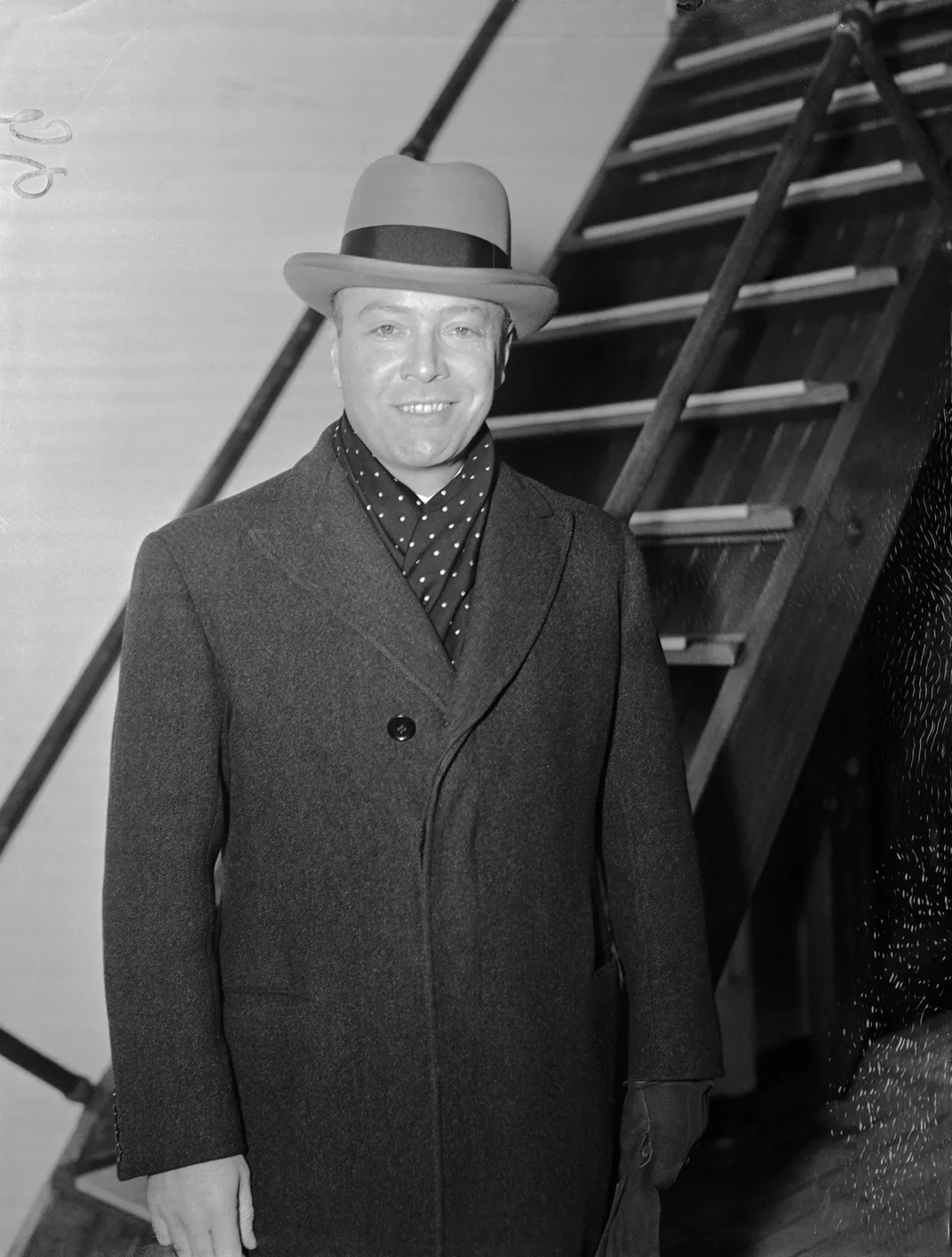
Then Bullitt made a dire political miscalculation. Later in 1940, a State Department rival of his, Undersecretary Sumner Welles, sexually propositioned a male railroad porter. Bullitt presented this information to Roosevelt, hoping to torpedo Welles’ career. Instead, FDR remained loyal to Welles and effectively blackballed Bullitt from government service.
Bullitt spent the rest of his life writing and speaking, most often about the dangers of Communism—like many young leftists, he took a hard rightward turn later in life. Meanwhile, the Wilson book remained in its leather case.
In 1946, for reasons Bullitt never publicly discussed, he transferred ownership of the manuscript to his daughter, Anne. That’s how matters stood until 1965, when Bullitt, now pushing 75, wrote a letter to Henry A. Laughlin, recently retired as chairman of the board of the Houghton Mifflin publishing company, saying she had deeded the manuscript back to him. Edith Wilson had died four years earlier, and Bullitt no longer had a political career to protect. He offered the manuscript to Laughlin, who accepted.
Fortunately, Bullitt, like his co-author, would never know how Thomas Woodrow Wilson was received. He had had leukemia for years, and it reached a terminal stage just as the book was published. He died on February 15, 1967.
At the time, Freud’s reputation in the United States was at its high-water mark. Philosophically, he was considered one of the troika of modern thinkers—along with Darwin and Einstein—who had upended traditional notions of man and the world. Medically, his ideas ruled: In a 1966 survey, three-quarters of American psychiatrists reported using psychoanalytic methods. It is little wonder the Wilson book’s faults were laid at Bullitt’s feet.
But the book’s critical reception hinted at things to come for Freud. Gradually, then swiftly, medication overtook talk therapy as the dominant mode of psychiatric treatment. And Freud’s ideas took hit after hit, including multiple revelations that he had fudged or misrepresented his findings.
Bullitt’s reputation, meanwhile, dropped from minimal to nil. Perhaps the discovery that he did not, in fact, write the worst passages in the book—that his contributions offer useful observations on the thinking and behavior of the 28th president—will help draw this 20th-century Zelig out of the shadows.
A Note to our Readers
Smithsonian magazine participates in affiliate link advertising programs. If you purchase an item through these links, we receive a commission.
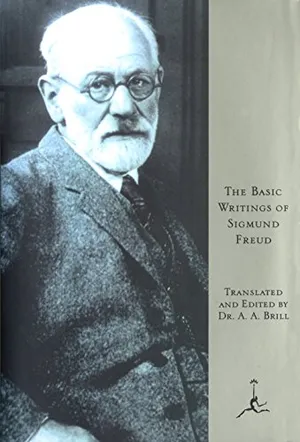
/https://tf-cmsv2-smithsonianmag-media.s3.amazonaws.com/accounts/headshot/yagoda.jpeg)